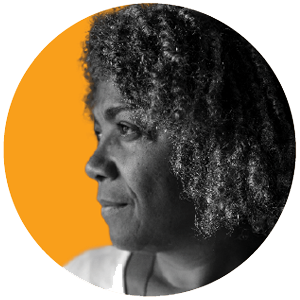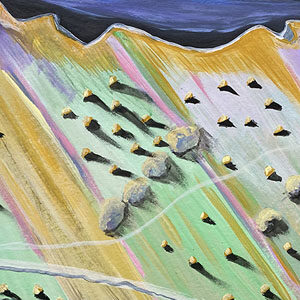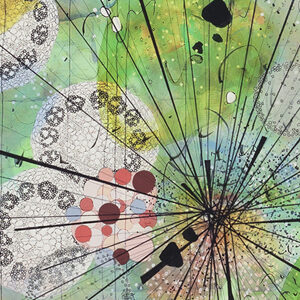We’ve arrived. Human activity has brought us to the Fourth Industrial Revolution, a confluence and convergence of multiple technological innovations—nanotechnology, synthetic biology, biotechnology, digital twins, artificial intelligence, robotics, quantum computing, etc.—where the physical, digital and biological realms can no longer be so clearly distinguished. Meanwhile, planet Earth is becoming less and less inhabitable for humans and other forms of life.
It’s been almost four decades since the philosopher Han Jonas wrote: The Imperative of Responsibility: In Search of an Ethics for the Technological Age. Given the date of its publication, this work might be considered by some to be an outmoded, irrelevant text. But the significance and importance of Jonas’ imperative that “new kinds and dimensions of action require a commensurate ethic of foresight and responsibility which is as novel as the eventualities that arise out of the works of homo faber in the era of technology” (18) is now a matter of urgency.
Jonas feared “an apocalypse threatening from the nature of the unintended dynamics of technical civilization” (202), leading to the desolation of the planet. To the objects of technology, Jonas included man himself, having turned on himself and imposed himself on nature in such a way that “calls upon the utter resources of ethical thought, which never before has been faced with elective alternatives to what we considered the definite terms of the human condition” (18). Clearly, his fear was not unfounded as it appears to be that homo faber—we who through our tools (and our technologies) have created our world and determined our destiny—seem to be meeting our fate.
Only four years after Jonas’ call for an ethics for the era of technology, James Hansen’s 1988 Congressional testimony on climate change warned of global warming and advocated for action to avoid climate change. What was increasingly clear to Hansen and fellow researchers, was the dangers of “anthropogenic interference” with the climate system. If Katrina was not enough of a siren’s call for us here in this country, and Harvey still not enough, then perhaps Ian’s devastating effects on Florida in October 2022 will leave no doubt that the actions, habits, and choices of homo faber have caused a great deal of trouble.
This critical state of global affairs is not lost on our students. In fact, sustainability and the compromised condition of the planet’s natural environment are foremost on their minds. The 2020 survey by the SOS (Students Organizing for Sustainability) disclosed findings that “Students are concerned about climate change and want to see this reflected in their education . . . Currently, climate and sustainability education isn’t yet reaching the classroom. We need an education system that will equip young people with the knowledge, skills, attributes, and values to create a more just and sustainable future for all.”1 Similarly, in Deloitte’s pre-pandemic Global Millennial and GenZ survey, half of the respondents said, “they feared the environment had passed the point of no return and that it was too late to repair the damage caused by climate change.”2
Perhaps this concern and awareness among students and other young people are partly because it’s ultimately they who will be left with the responsibility for fixing the problems associated with our radically changing climate. Their concern may also be because, for better and for worse, their lives and futures are most directly impacted by the unintended consequences of our techno-created world, more so than for those of us who have rightly been accused of riding the waves of technological development with impunity.
Jonas posited that ethics for this age calls for a new kind of humility—“a humility owed, not like the former humility, to the smallness of our power, but to the excessive magnitude of it, which is the excess of our power to act over our power to foresee and our power to evaluate and to judge” (22). In the face of growing and sustained student concern over the critical state of our planetary environment, we have the duty, it would seem, to provide ethics education that includes the cultivation of such humility as Jonas describes. But how?
Following Aristotle’s Nicomachean Ethics, moral virtue is learned through habit and practice rather than through reasoning and instruction. This suggests that as a virtue, the humility to which Jonas referred cannot be a merely intellectual undertaking. Rather, it must be a process through which individuals participating in our institutions of learning—faculty, students, administrators, and staff—come to a shared awareness of our excessive power, and then practice and cultivate the responsibility of humility to foresee and anticipate and manage the effects of that power.
If we consider humility to be a liberation from the consciousness of the self as separate, then it becomes possible to consider the self as an interdependent collective. It’s the sense of self as an entitled, individual, self-seeking “I” that is partly to blame for our current condition of wielding excessive power over the natural world. But “we” educators won’t be able to teach that kind of humility of to our students until we achieve it for ourselves. Before an awareness of our excessive power can be taught to students as a virtue to embrace in humility, it has to be demonstrated, modeled, and exhibited by those of us who do the teaching.
Notes
- SOS. 2020 Survey: “Students, sustainability, and education.” Students Organizing for Sustainability International. Retrieved on 10.3.2022 from sos.earth/survey-2020.
- Deloitte (2021). A Call for Accountability and Action. Retrieved from deloitte.com/content/dam/Deloitte/global/Documents/2021-deloitte-global-millennial-survey-report.pdf.

















